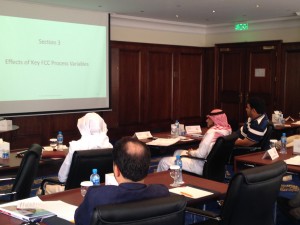Going into the second quarter of 2016, FCC units are generally running at above 92% run rates, according to the latest information from the U.S. Energy Information Administration (EIA).
Surges in gasoline demand (whether short term or not), combined with long-term process goals, such as increased propylene production for alkylate production or petrochemical feedstock, have compelled closer scrutiny on FCC hardware. Will it hold out at higher severity? Can the unit run full out throughout the summer? With limited resources, what components should receive the highest priority (feed nozzles, strippers, riser terminators, transfer lines)?
When considering the next big evolution in FCC hardware, process and catalytic factors factor into future hardware replacement and upgrades. One important consideration affecting most FCC units focuses on spent catalyst and air distribution systems for improved mixing and NOx reduction. The extent of this focus is such that environmental considerations take precedence over profit driven objectives. However, hardware, technology and catalyst suppliers have been helping refiners meet dual environmental and profitability objectives. That is, supplying hardware with the operational flexibility to adjust to the refining facility’s market objectives while also meeting lower environmental emissions requirements.
Air distribution affects NOx emissions. Upgrading regenerator internals, including air distribution has been proven to reduce NOx emissions, but at significant cost and downtime, depending on level of experience from the supplier. In cases where the FCC unit is operating in full burn, SOx and NOx limits can be met with additives, hardware, or a combination thereof.
Combinations of FCC hardware suppliers and plant reliability teams who have experienced these events in a typical four year unit run will discuss their experiences at the upcoming RefComm® Galveston 2016 refining conference (www.refiningcommunity.com/refcomm-galveston-2016).








Leave a Reply
You must be logged in to post a comment.